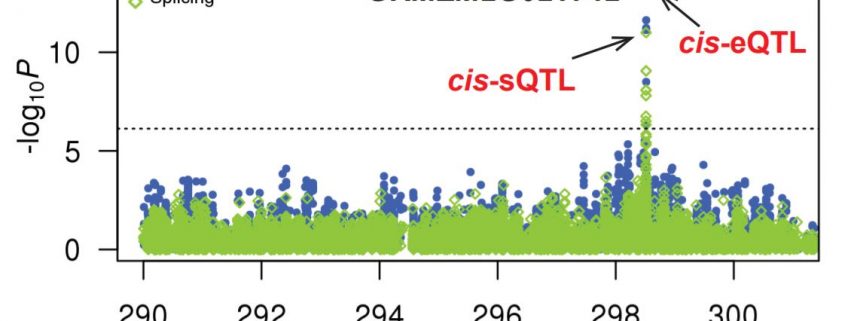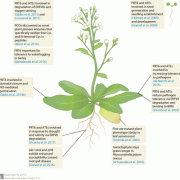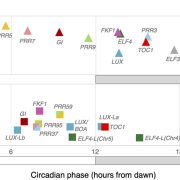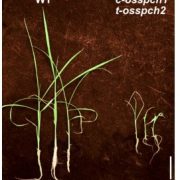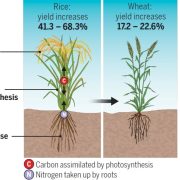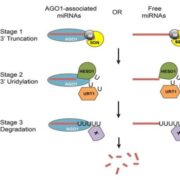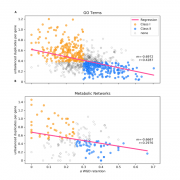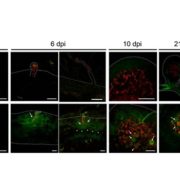Genome-Wide Assessment of Alternative Splicing in Maize
Chen et al. higlight the importance of AS in diversifying gene function and regulating phenotypic variation. The Plant Cell https://doi.org/10.1105/tpc.18.00109
Background: Alternative splicing (AS) of precursor mRNAs is an essential regulatory mechanism that greatly enhances transcriptome and proteome diversity. AS is prevalent in plants and functions in a wide range of growth and development processes.
Question: How is the natural variation in AS regulated? How is the regulation of AS coupled with the gene regulatory network? Is the natural variation in AS and in overall mRNA level commonly or independently regulated? To what extent AS does contribute to phenotypic variation?
Findings: We performed a genome-wide association study to identify splicing quantitative trait loci (sQTLs) in developing kernels from 368 diverse maize inbred lines. We identified 19,554 unique sQTLs controlling the splicing of 6570 genes. An average of three sQTLs was mapped for each gene, indicating that the splicing variation of most genes is under relatively simple genetic control. Most sQTLs showed small isoform usage changes without involving major isoform switches between genotypes. Characterization of the regulatory features of sQTLs demonstrated that nonsense-mediated mRNA decay, microRNA-mediated regulation, and small interfering peptide-mediated peptide interference are frequently involved in sQTL regulation, highlighting the importance of AS in coupling different layers of gene regulation mechanisms. We found that the natural variation in AS and overall mRNA level appears to be independently regulated with different cis-sequences preferentially used. We identified 214 putative trans-acting splicing regulators and further demonstrated that ZmGRP1, an hnRNP-like glycine-rich RNA-binding protein that regulates the largest trans-cluster, altered splicing of numerous downstream genes. We found that 739 sQTLs colocalized with previous marker-trait associations, most of which occurred without changes in overall mRNA level, underscoring the importance of AS in regulating phenotypic variation.
Next steps: Further work is required to specifically elucidate the molecular mechanisms by which sQTLs function in the gene regulation network and affect the phenotypic variation in the traits of interest.
Qiuyue Chen, Yingjia Han, Haijun Liu, Xufeng Wang, Jiamin Sun, Binghao Zhao, Weiya Li, Jinge Tian, Yameng Liang, Jianbing Yan, Xiaohong Yang, and Feng Tian (2018). Genome-Wide Association Analyses Reveal the Importance of Alternative Splicing in Diversifying Gene Function and Regulating Phenotypic Variation in Maize. Plant Cell. Published July 2018. DOI: https://doi.org/10.1105/tpc.18.00109


